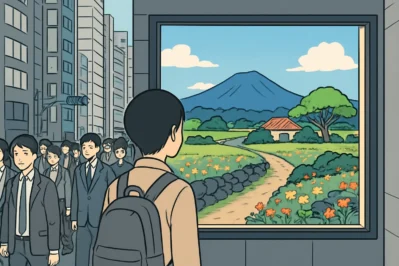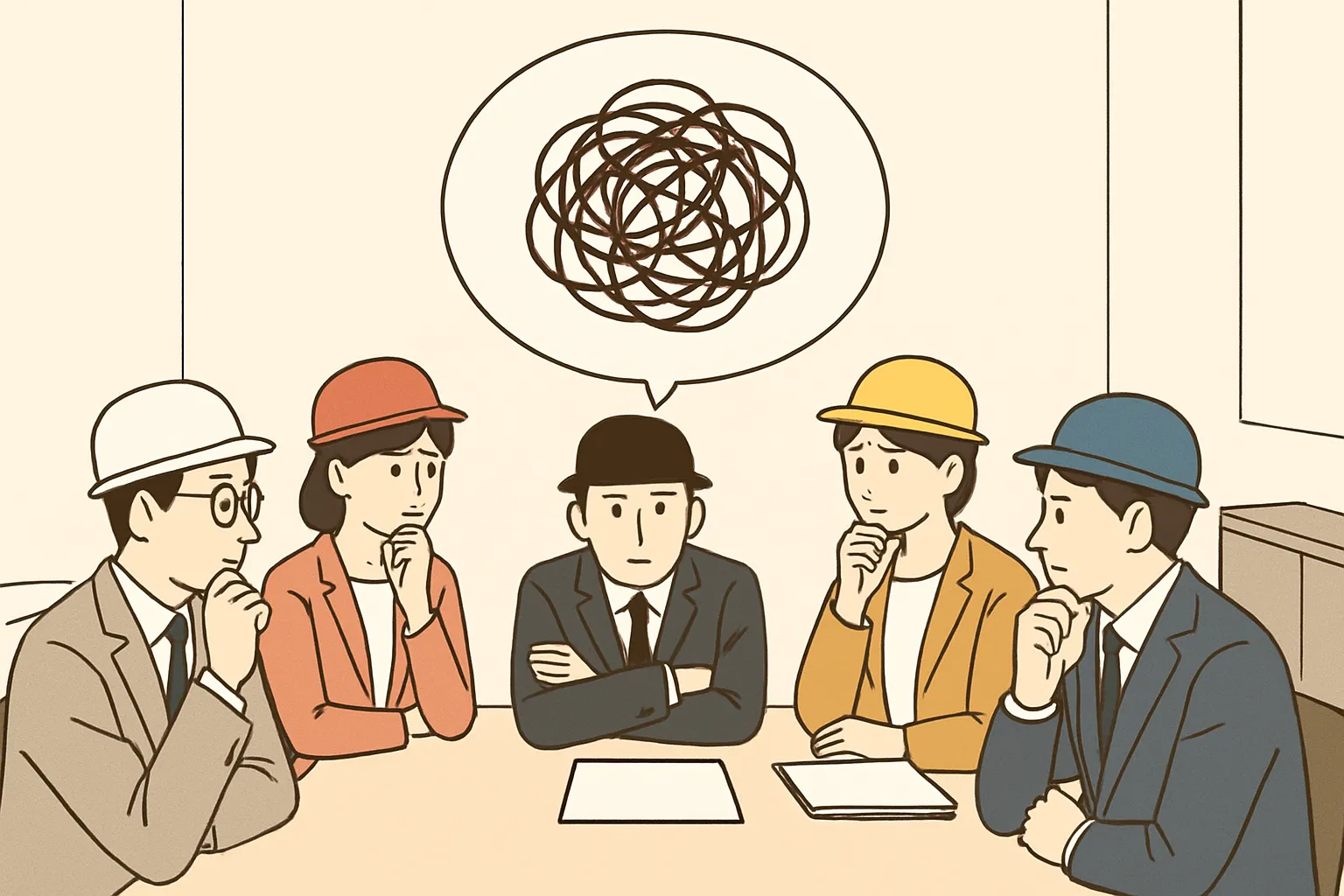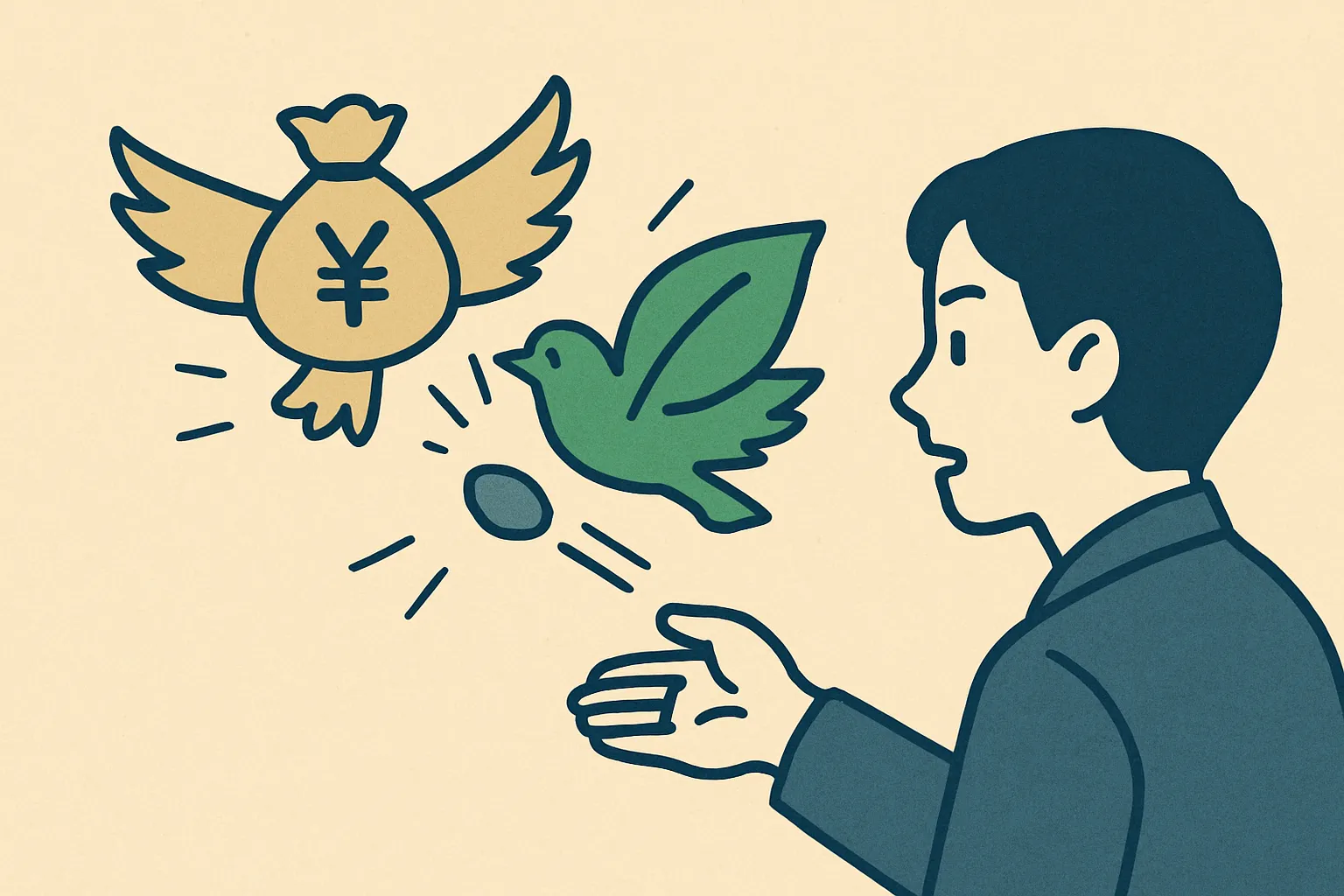From Seoul’s Hustle to Jeju’s Calm: Talk Like a K-Drama Star!
Hello! This is Maeil Hangeul (매일한글), here to upgrade your Korean skills!
Have you ever wanted to talk about your hometown? Or maybe explain how different your life is now compared to when you were a kid? Today, we’re going to learn how to do just that!
Nowadays in Korea (요즘 한국에서는…), K-dramas set in beautiful, peaceful countryside locations like ‘Welcome to Samdal-ri’ or ‘Hometown Cha-Cha-Cha’ are incredibly popular. Many Koreans living in busy cities dream of a quieter life, and these shows give them a sense of ‘healing’. Today, you’ll learn the essential Korean expressions to share your own stories about city and country life, just like the characters in your favorite drama!
Let’s get started!
Core Expressions You Need to Know
Here are today’s key phrases for comparing your past and present homes.
1. 어렸을 때 (eoryeosseul ttae)
- Pronunciation [Romanized]: eo-ryeoss-eul ttae
- English Meaning: When I was young / In my childhood
- Detailed Explanation: This is a fixed phrase that you can put at the beginning of a sentence to talk about the past. It literally means “when I was little.” It’s the most natural way to start a story about your childhood. It’s a casual and friendly expression.
2. -(으)ㄴ/는데 (-(eu)n/neun-de)
- Pronunciation [Romanized]: -(eu)n/neun-de
- English Meaning: but / and / whereas (used to connect two clauses, often showing contrast)
- Detailed Explanation: This is a super useful grammar point! It connects two sentences or ideas. While it can have many meanings, today we’ll focus on its use for contrast. Think of it as a soft “but” or “whereas.”
- Use -은데 with adjectives ending in a consonant (e.g., 좋다 -> 좋은데).
- Use -ㄴ데 with adjectives ending in a vowel (e.g., 크다 -> 큰데).
- Use -는데 with verbs (e.g., 가다 -> 가는데) and 있다/없다.
- Example: “The city is noisy, but the countryside is quiet.” -> “도시는 시끄러운데, 시골은 조용해요.”
3. 복잡하다 (bokjaphada) vs. 한적하다 (hanjeokada)
- Pronunciation [Romanized]: bok-jap-ha-da / han-jeok-ha-da
- English Meaning: To be crowded/complicated vs. To be quiet/tranquil
- Detailed Explanation: These two adjectives are a perfect pair for describing city vs. country life.
- 복잡하다 is used for things that are crowded and busy, like city streets (길이 복잡해요), the subway (지하철이 복잡해요), or even a complicated problem.
- 한적하다 describes a place that is peaceful, quiet, and doesn’t have many people. It has a very positive and relaxing feeling.
4. 그립다 (geuripda)
- Pronunciation [Romanized]: geu-rip-da
- English Meaning: To miss / To long for (a place, time, or person)
- Detailed Explanation: This word describes a deep feeling of missing something or someone from the past. While you can use “보고 싶다” to say “I miss you” to a person, 그립다 has a more nostalgic feeling. It’s perfect for saying you miss your hometown (고향이 그리워요) or your childhood (어렸을 때가 그리워요).
Example Conversation
Let’s see how these expressions are used in a real conversation! Two friends, Mina and Ben, are talking.
A (Mina): 요즘 드라마 ‘웰컴투 삼달리’를 보는데, 제 고향 생각이 많이 나요.
(Yojeum deurama ‘Welkeomtu Samdalli’-reul boneunde, je gohyang saenggagi mani nayo.)
(I’m watching the drama ‘Welcome to Samdal-ri’ these days, and it makes me think of my hometown a lot.)
B (Ben): 아, 진짜요? 미나 씨 고향은 어땠어요? 어렸을 때 살기 좋았어요?
(A, jinjayo? Mina-ssi gohyang-eun eottaesseoyo? Eoryeosseul ttae salgi joasseoyo?)
(Oh, really? What was your hometown like, Mina? Was it a good place to live when you were young?)
A (Mina): 네. 지금 사는 서울은 아주 복잡한데, 제 고향은 정말 한적했어요. 가끔 그 조용한 시간이 그리워요.
(Ne. Jigeum saneun Seoul-eun aju bokjaphande, je gohyang-eun jeongmal hanjeokaesseoyo. Gakkeum geu joyonghan sigani geuriwoyo.)
(Yes. Seoul, where I live now, is very crowded, but my hometown was really tranquil. Sometimes I miss those quiet times.)
B (Ben): 저도 이해해요. 저도 가끔 시골에서 살아보고 싶어요.
(Jeodo ihaehaeyo. Jeodo gakkeum sigol-eseo sarabogo sipeoyo.)
(I understand. I sometimes want to try living in the countryside, too.)
Culture Tip: The Korean “Healing” (힐링) Trend
Why are these countryside dramas so popular? It’s all about “힐링” (hilling) – the Korean pronunciation of “healing.”
In Korea, especially in big cities like Seoul, life can be very fast-paced and competitive. This is often called the “빨리빨리” (ppalli-ppalli: hurry, hurry) culture. To escape this stress, many young Koreans seek out “healing” experiences.
This could mean watching a relaxing drama set on Jeju Island, taking a weekend trip to a quiet town (한적한 동네), or posting pictures of nature on Instagram with the hashtag #힐링. When you use words like 한적하다 and 그립다, you’re not just using vocabulary; you’re tapping into a very current and important part of modern Korean culture! Using these words will make you sound much more like a native speaker.
Let’s Practice!
Time to review what you’ve learned! Try these simple exercises.
1. Fill in the Blank:
Choose the correct word to complete the sentence.
(복잡하다, 한적하다, 그립다)
어렸을 때 살던 우리 동네는 조용하고 ________.
(The neighborhood I lived in when I was young was quiet and ________.)
2. Make Your Own Sentence:
Using -(으)ㄴ/는데, write one sentence comparing your city/country to another.
Example: “My city is big, but my friend’s city is small.” -> “제 도시는 큰데, 친구의 도시는 작아요.”
Great job today! You’re now ready to share stories about your life and connect more deeply with Korean culture.
Now it’s your turn! In the comments below, tell us about your hometown using the expressions you learned today. We’d love to read your stories!






